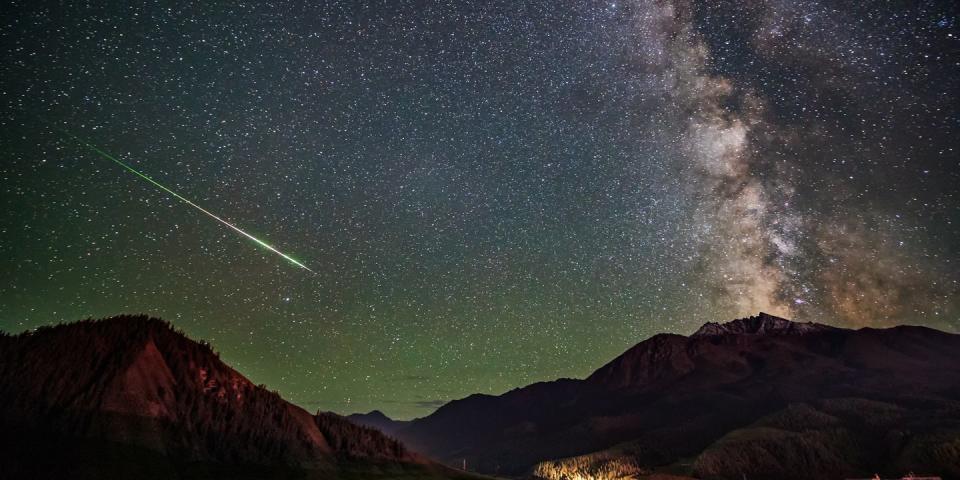Look Up! Twin Meteor Showers Will Light Up the Night Sky to Close Out July

Two meteor showers will peak on the night of Wednesday, July 28.
Although the Southern Delta Aquariids will produce more meteors, the Alpha Capracornids offer brighter shooting stars.
The next meteor shower, the Perseids, peaks on the night of Wednesday, August 11.
After a relatively quiet spring, the first meteor shower of the summer is finally on the way. On the night of Wednesday, July 28, two separate meteor showers will peak at the exact same time, meaning you should expect a cosmic show worth staying up late—or waking up early—for.
The Southern Delta Aquariids will be visible from July 12 to August 23, 2021, peaking in the pre-dawn hours of July 29, per the American Meteor Society (AMS); the Alpha Capracornids will be visible from July 3 to August 15, peaking roughly at the same moment as the other shower.
🌜You love stargazing. So do we. Let’s look up together!🌛
Although the Delta Aquariids will produce a more consistent shower, with 12 faint meteors per hour on average, according to the Griffith Observatory, the Alpha Capracornids offer up about five strong, bright shooting stars each hour, the AMS notes. (They’re a perfect couple, if you ask us.)
You can look anywhere during a meteor shower, but the best portion of the sky to watch is usually “about 30 degrees away from the radiant point,” the AMS explains. “Radiant point” refers to the rough spot from which shooting stars seem to emerge, so angle yourself in the general direction where the meteors will appear—which, in this case, is low in the southern sky.
And the best news is that all you really need to do is look up: “You can experience the magic of the nighttime without any equipment,” says Jackie Faherty, a Hubble fellow at the Carnegie Institute for Science’s Earth and Planets Laboratory. Just give your eyes 15 to 20 minutes of darkness to adjust. “Don’t look at your phone or you’re going to ruin your night vision,” she explains.
Even though two meteor showers peaking at the same time should make for quite the sight, this isn’t even the most spectacular cosmic show of 2021; the Perseids, which NASA calls “the best meteor shower of the year,” started on July 17 and will peak just two weeks later, on the night of Wednesday, August 11.
You Might Also Like

